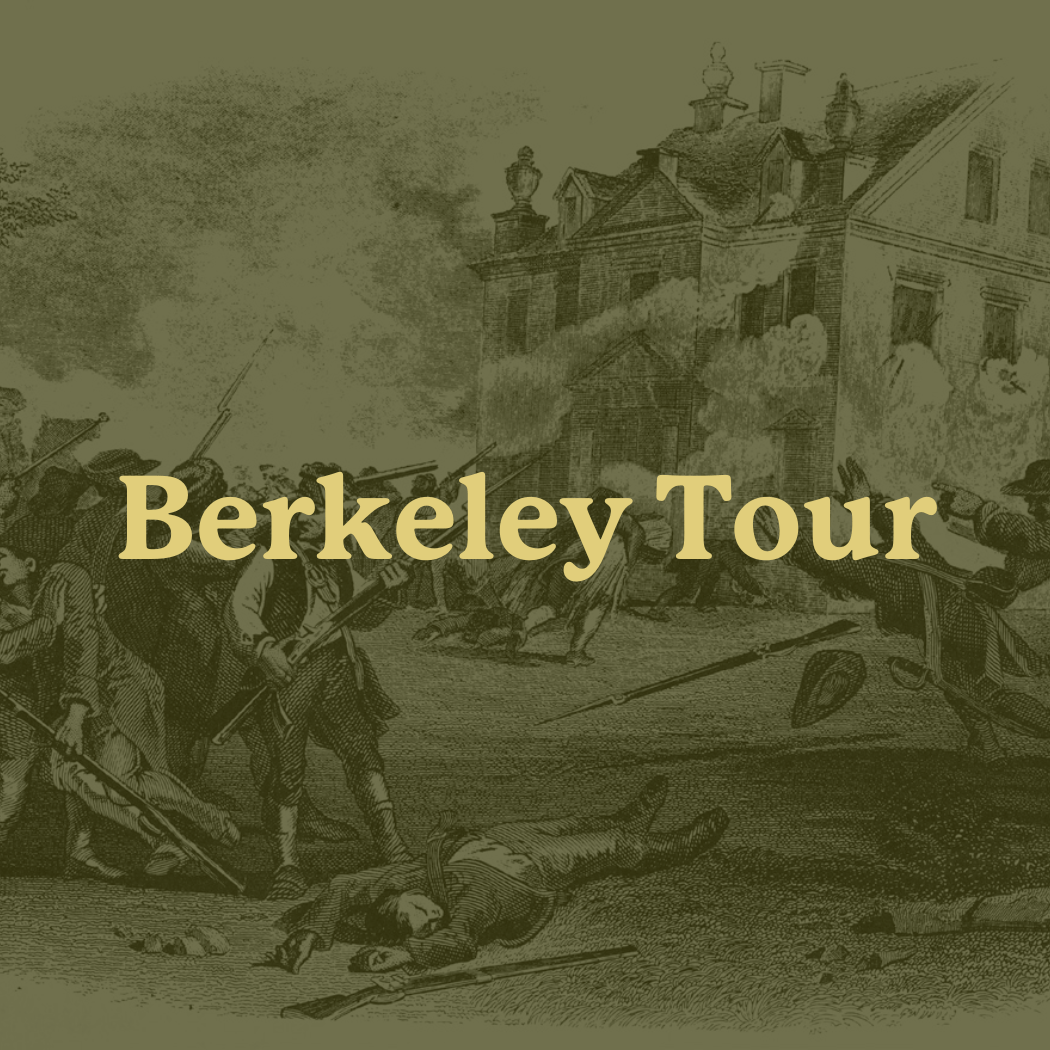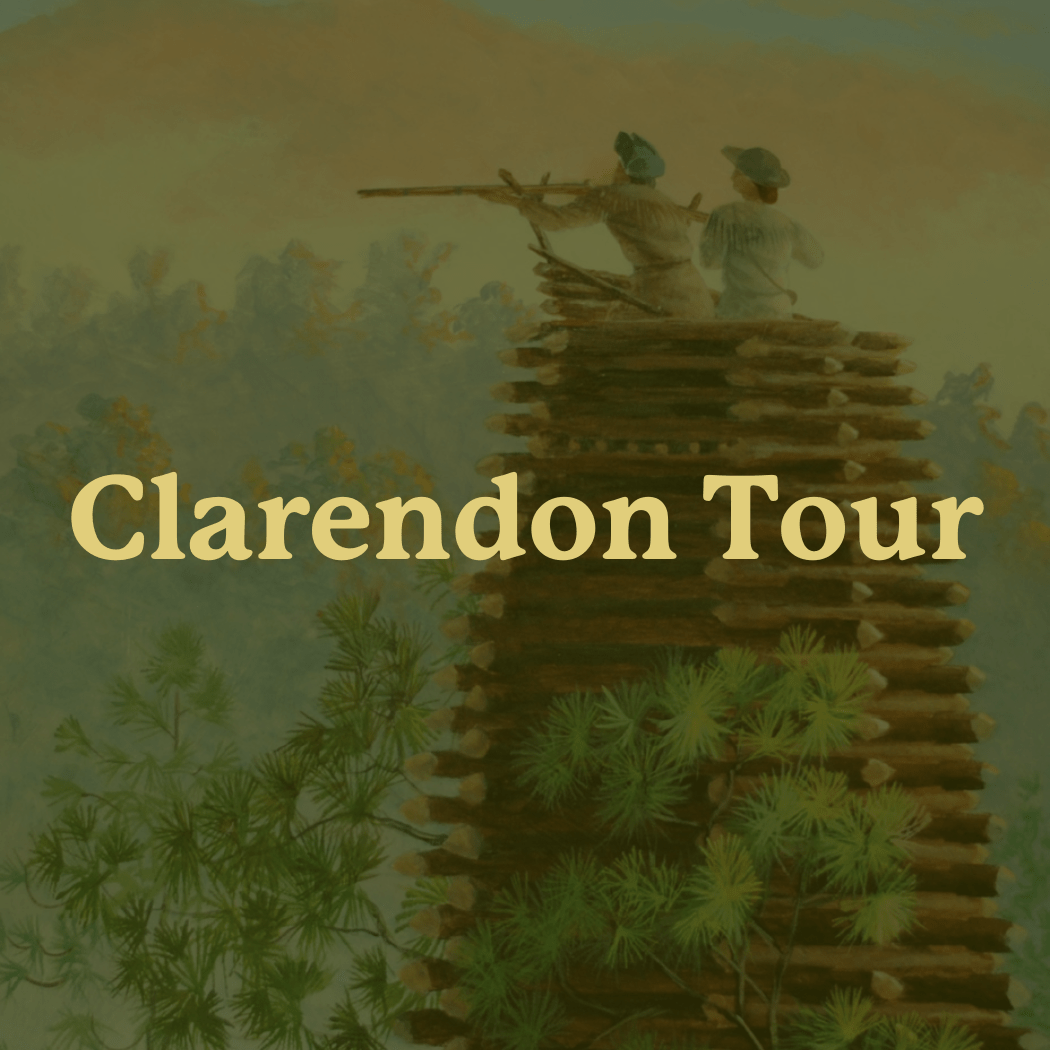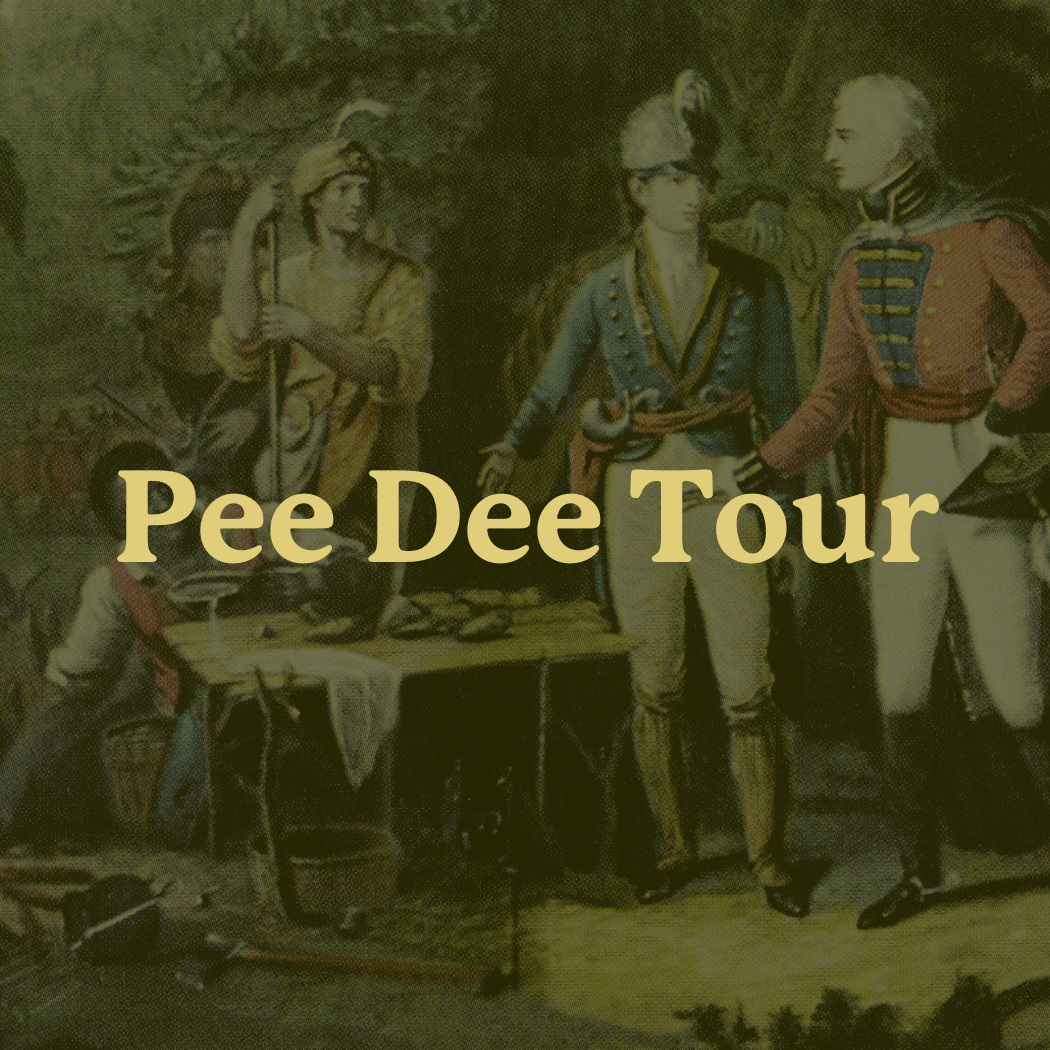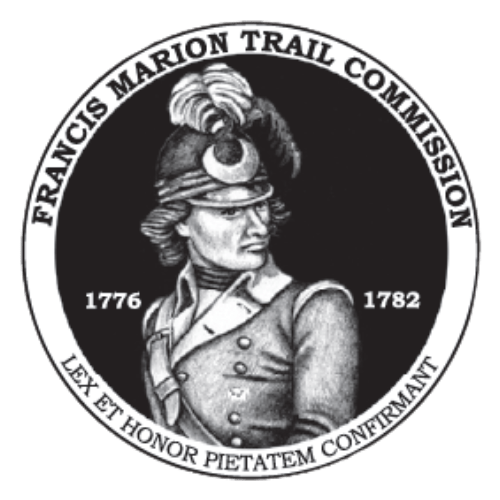Explore the trails of Brig. Gen. Francis Marion and learn how he became known as the "Swamp Fox."

BERKELEY TOUR
Of the four sites in Berkeley County, three are associated with controversial episodes in Francis Marion’s career: Quinby Bridge, where he vowed never again to work with Gen. Thomas Sumter, another Patriot militia leader; and Colleton House and Fort Fairlawn, where Marion’s men were accused of violating the rules of war. Also, here is Wadboo Barony, site of Marion’s last encampment of the war. Along the way, be sure to stop at the Train Depot visitor center and gift shop in historic Moncks Corner; visit the church and gardens of Mepkin Abbey, a Trappist monastery; and check out the many outdoor recreational activities in the Francis Marion National Forest.

CLARENDON TOUR
The four sites in Clarendon County include two fine examples of the swampy wetlands that Francis Marion used to his advantage against his adversaries, the Santee Indian pyramid that British forces used as a fort, and an engagement in the Bridges Campaign, Marion’s famous running battle with Col. John Watson. Along the way, be sure to stop for a bite to eat in Manning’s vibrant downtown; see the beautiful Revolutionary War-themed murals on buildings in Manning, Summerton, and Turbeville; and stop at historic Liberty Hill African Methodist Episcopal Church near Summerton.

PEE DEE TOUR
Encompassing portions of Florence, Marion, Georgetown, and Williamsburg Counties, the Pee Dee Tour includes seven sites along the Great Pee Dee River and several of its tributaries. Among the sites on this tour are the scenes of some of Marion’s first acts as a partisan leader at Witherspoon’s Ferry, Kingstree, and Black Mingo Creek, as well as one of his last, the signing of a peace treaty with a local Tory leader at Burch’s Mill. Along the way, stop for lunch or dinner at one of the nationally-famous barbeque restaurants in Hemingway and Johsonville; take a kayak out on the Lynches River or Black Mingo Creek; and stroll through the charming historic district of downtown Kingstree.

Discover the Francis Marion Trail—your gateway to the Revolutionary War in South Carolina’s Pee Dee and Santee basins. The Francis Marion Trail Commission (FMTC) preserves and interprets authentic “Swamp Fox” sites through self-guided driving tours, clear directions, and well-placed interpretive signage—inviting you to explore history amid rivers, wetlands, and forests.
Berkeley Tour
Trace decisive moments across Berkeley County: pay respects at Francis Marion’s Gravesite; stand at Wadboo—Marion’s final wartime headquarters; examine the hard lessons of Quinby Bridge/Shubrick’s Plantation; and explore Fort Fairlawn and the Colleton House, long debated for their wartime actions. Nearby, enjoy Moncks Corner’s visitor hub and the Old Santee Canal Park’s museums and boardwalks.
Clarendon Tour
This four-site route showcases the wetlands tactics that made Marion so elusive: Ox Swamp, Wyboo Swamp (the opening of the Bridges Campaign), Halfway Swamp, and Fort Watson—where Patriot marksmen atop “Maham’s tower” forced a British surrender on the Santee Indian mound, a pivotal morale boost for Patriot forces.
Pee Dee Tour
Following the Great Pee Dee River and its tributaries, the Pee Dee Tour features eight stops where Marion organized militias, disrupted British lines, and forged legends. Highlights include Burch’s Mill (peace-making after years of conflict), Dunham’s Bluff & Snow’s Island (river control and the Swamp Fox’s den), Witherspoon’s Landing, the Battle of Black Mingo, Indiantown Presbyterian Church, the Battle of Kingstree, and the Battle of Lower Bridge. It’s perfect for pairing paddling at Lynches River or Black Mingo with an afternoon of historic site-hopping in Kingstree.
Plan your Revolutionary War Road trip: download the Francis Marion Trail App, follow the FMTC interpretive signs, and experience the authentic landscapes that earned Francis Marion the name “Swamp Fox.” Explore all seventeen sites across these tours and see how South Carolina’s landscape helped turn the tide toward American independence.
Berkeley TOUR
Of the four sites in Berkeley County, three are associated with controversial episodes in Francis Marion’s career: Quinby Bridge, where he vowed never again to work with Gen. Thomas Sumter, another Patriot militia leader; and Colleton House and Fort Fairlawn, where Marion’s men were accused of violating the rules of war. Also here is Wadboo Barony, site of Marion’s last encampment of the war. Along the way, be sure to stop at the Train Depot visitor center and gift shop in historic Moncks Corner; visit the church and gardens of Mepkin Abbey, a Trappist monastery; and check out the many outdoor recreational activities in the Francis Marion National Forest.
Clarendon TOUR
The four sites in Clarendon County include two fine examples of the swampy wetlands that Francis Marion used to his advantage against his adversaries, the Santee Indian pyramid that British forces used as a fort, and an engagement in the Bridges Campaign, Marion’s famous running battle with Col. John Watson. Along the way, be sure to stop for a bite to eat in Manning’s vibrant downtown; see the beautiful Revolutionary War-themed murals on buildings in Manning, Summerton, and Turbeville; and stop at historic Liberty Hill African Methodist Episcopal Church near Summerton.
Pee Dee TOUR
Encompassing portions of Florence, Marion, Georgetown, and Williamsburg counties, the Pee Dee Tour includes eight sites along the Great Pee Dee River and several of its tributaries. Among the sites on this tour are the scenes of some of Marion’s first acts as a partisan leader at Witherspoon’s Ferry, Kingstree, and Black Mingo Creek, as well as one of his last, the signing of a peace treaty with a local Tory leader at Burch’s Mill. Along the way, stop for lunch or dinner at one of the nationally famous barbeque restaurants in Hemingway and Johnsonville; take a kayak out on the Lynches River or Black Mingo Creek; and stroll through the charming historic district of downtown Kingstree.


